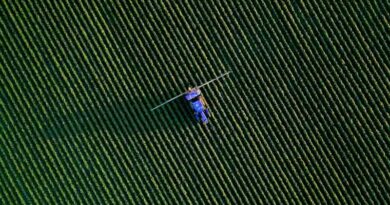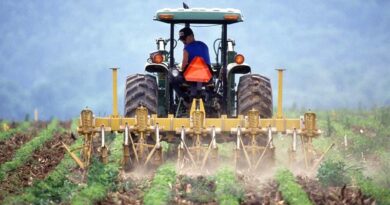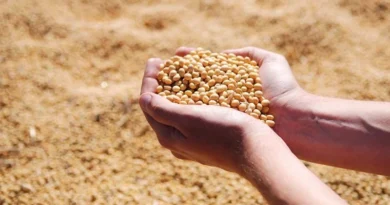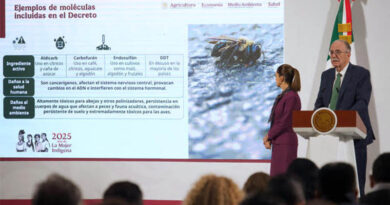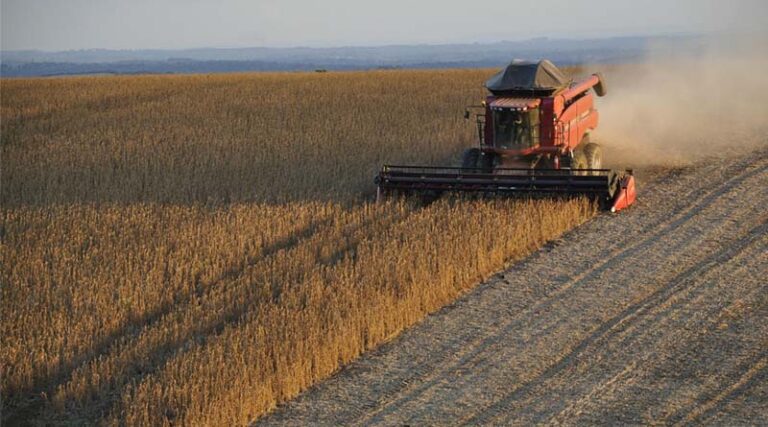
Crop Protection and Nutrition Update – Brazil and Latin America
By AgriBrasilis
14 July 2025, São Paulo: Brazil’s agricultural sector saw a range of regulatory, scientific, and commercial developments in crop protection and fertilizers this week, with particular focus on improved practices, rising input deliveries, and evolving government policies.
Fungicide Use Boosts Soybean Yields
Research institutions across Brazil have confirmed that the proper application of fungicides led to significant yield gains in soybeans, even under heavy pressure from target spot caused by Corynespora cassiicola. The findings, based on trials at 19 locations during the 2024/25 season, emphasize the value of disease control amid rising demand for sustainable production. (FRAC)
Regulatory Updates
Brazil’s health agency Anvisa approved the toxicological assessments of two new agrochemical formulations: 2,4-D-dimetilamina + aminopyralid (CHDS) and chlorfenapyr 190 + lufenuron 50 g/kg SC (Biorisk). (Resolutions No. 2501 & 2502, Anvisa)
The Ministry of Agriculture (MAPA) formalized a National Program for the Prevention and Control of Huanglongbing (Greening Disease), establishing phytosanitary protocols for citrus-growing regions. (Ordinance No. 1.326, MAPA)
Additionally, MAPA has registered 161 technical products and 254 formulated products so far in 2025. Of these, 78 are biologicals or approved for organic farming, highlighting the sector’s gradual shift toward sustainable solutions.
Fertilizer Demand Rises Amid Input Price Concerns
Brazil’s fertilizer deliveries reached 2.68 million tonnes in April, up 16.8% year-on-year, according to ANDA. Despite geopolitical and logistical pressures, the sector continues efforts to maintain steady supply chains to meet expectations of a record harvest.
However, analysts warn of narrowing profit margins for the upcoming 2025/26 season due to rising input costs—particularly fertilizers—and persistently high interest rates. (Itaú BBA)
On the global trade front, easing tensions between Israel and Iran and resumed nitrogen production in Egypt and Iran have helped stabilize urea prices in Brazil. “This price relief benefits importers as nitrogen demand typically peaks in the second half for corn,” said Tomás Pernías of StoneX.
New Policies and Industry Reactions
The federal government’s launch of the National Program for the Reduction of Pesticides (Pronara) has stirred debate. Agrarian Development Minister Paulo Teixeira called for a national transition to agroecological practices and pledged to replace synthetic pesticides with bioinputs where possible.
Luiz Meirelles of Fiocruz emphasized the importance of independent monitoring of pesticide residues for public health. However, CropLife Brasil expressed concern over the lack of industry consultation, arguing that stakeholder input is vital for balanced policymaking.
MAPA also published Ordinance No. 805/2025, establishing a National Program for the Traceability of Pesticide Products. Critics, including Roberto Araújo of CCAS, claim the measure was rushed and has led to discomfort within the agricultural sector, prompting legislative pushback in Congress.
Law Enforcement and Illegal Trade
A joint operation by state military police in Minas Gerais and Goiás led to the seizure of approximately 1,600 kg of illegal pesticides, including thiamethoxam, from a clandestine laboratory in Unaí, MG.
Corporate Moves and Events
- Hubio Agro named Killer Peterson Abreu as its new CEO.
- Bayer appointed Bruno Camargo dos Santos as Marketing Director for Soy Seeds & Traits.
- Grupo UbyAgro announced Murilo Roveri as its new HR Director.
- Cibra Fertilizantes unveiled a US$272.7 million investment plan to more than double its raw material processing capacity to 5 million tonnes annually.
- Tecnomyl partnered with Syngenta to market the solatenol-based fungicide under the Desali brand.
Upcoming Events
AgriBrasilis confirmed its participation in the 16th Brasil AgrochemShow, scheduled for August 12–13. The event will showcase innovations in agrochemicals, fertilizers, and bioinputs and is organized by AllierBrasil in partnership with CCPIT CHEM of China.
Research and Product Innovation
- Embrapa Agrobiologia, in partnership with Agrocete, is developing a bioinput for pasture improvement that combines three bacterial strains to reduce fertilizer dependency. Market launch is expected in 2026.
- A multi-location trial across six regions confirmed the effectiveness of seed-treatment fungicides in wheat. Benzimidazole-based mixtures achieved nearly 98% control of Fusarium graminearum, while other combinations surpassed 96% efficacy against Bipolaris sorokiniana.
Bioinput Framework Advances
The Brazilian Association of Bioinput Industries (Abinbio) held meetings to discuss the regulation of the recently passed Legal Framework for Bioinputs (Law No. 15.070/2024). The law, approved in late 2024, is pending detailed implementation guidelines.
Other Developments
- Anvisa announced the voluntary withdrawal of toxicological evaluation requests for 13 products, including 10 from Cropchem, two from Syngenta, and one from Crystal.
- MAPA issued an official request to prioritize the review of products containing metproxibiciclona, aimed at controlling barnyard grass (Eleusine indica).
- In Santa Catarina, a sanitary void for passion fruit cultivation has been set for July to curb the spread of Cowpea aphid-borne mosaic virus (CABMV), the main disease affecting the crop.
Also Read: Coming November 2025: Online Basic Course For Future Organic Advisors
📢 If You’re in Agriculture, Make Sure the Right People Hear Your Story.
From product launches to strategic announcements, Global Agriculture offers unmatched visibility across international agri-business markets. Connect with us at pr@global-agriculture.com to explore editorial and advertising opportunities that reach the right audience, worldwide.


